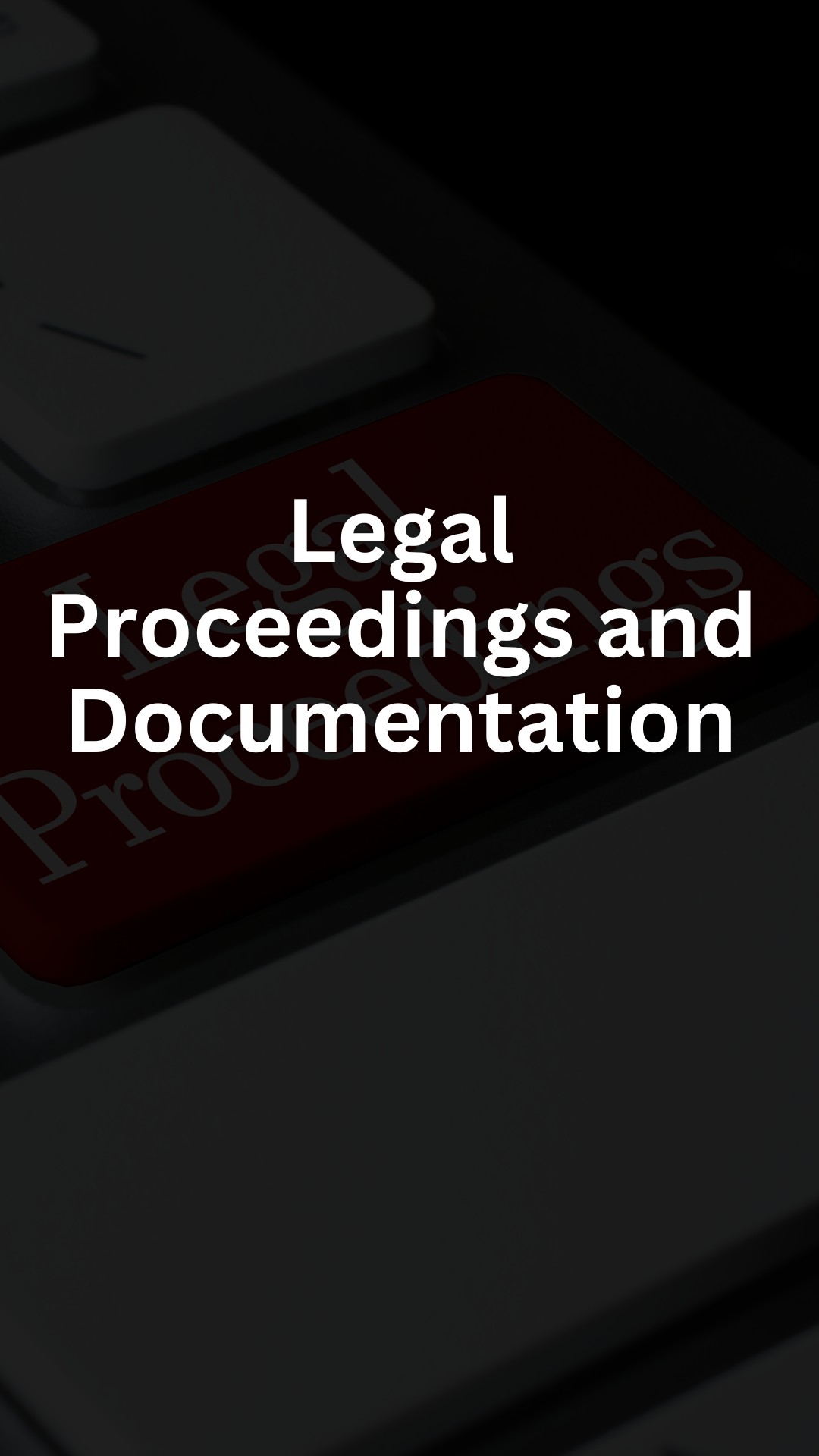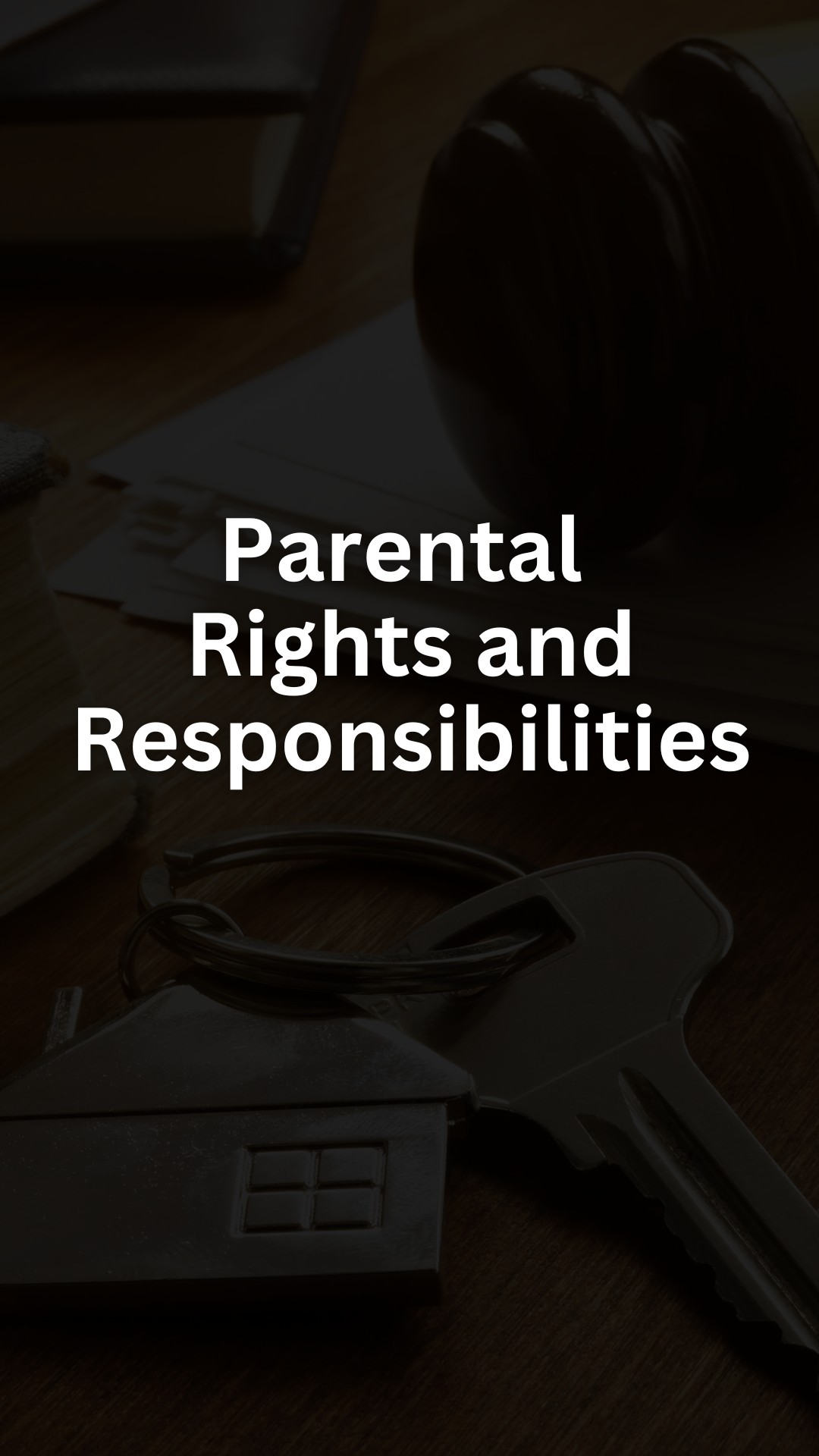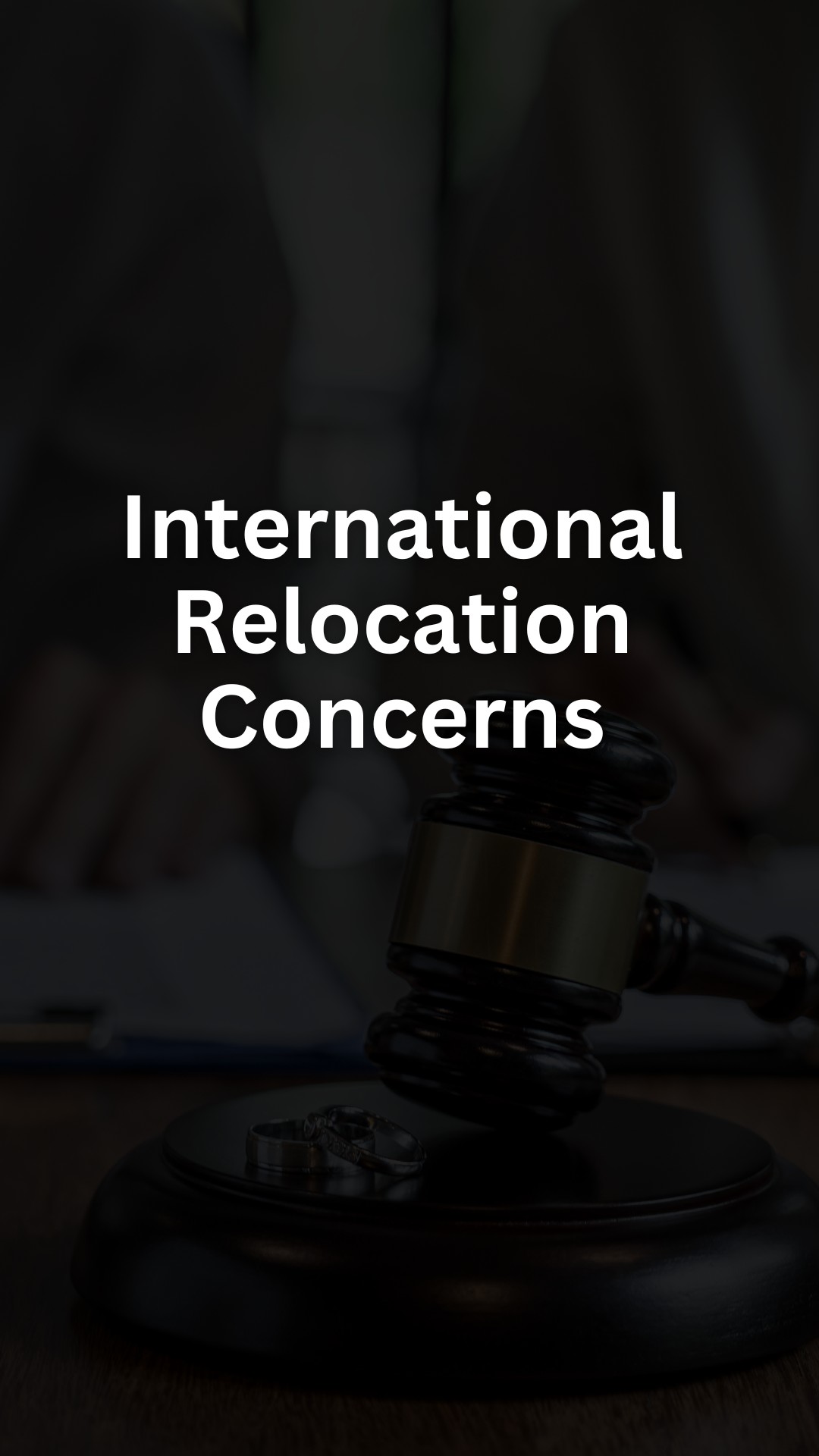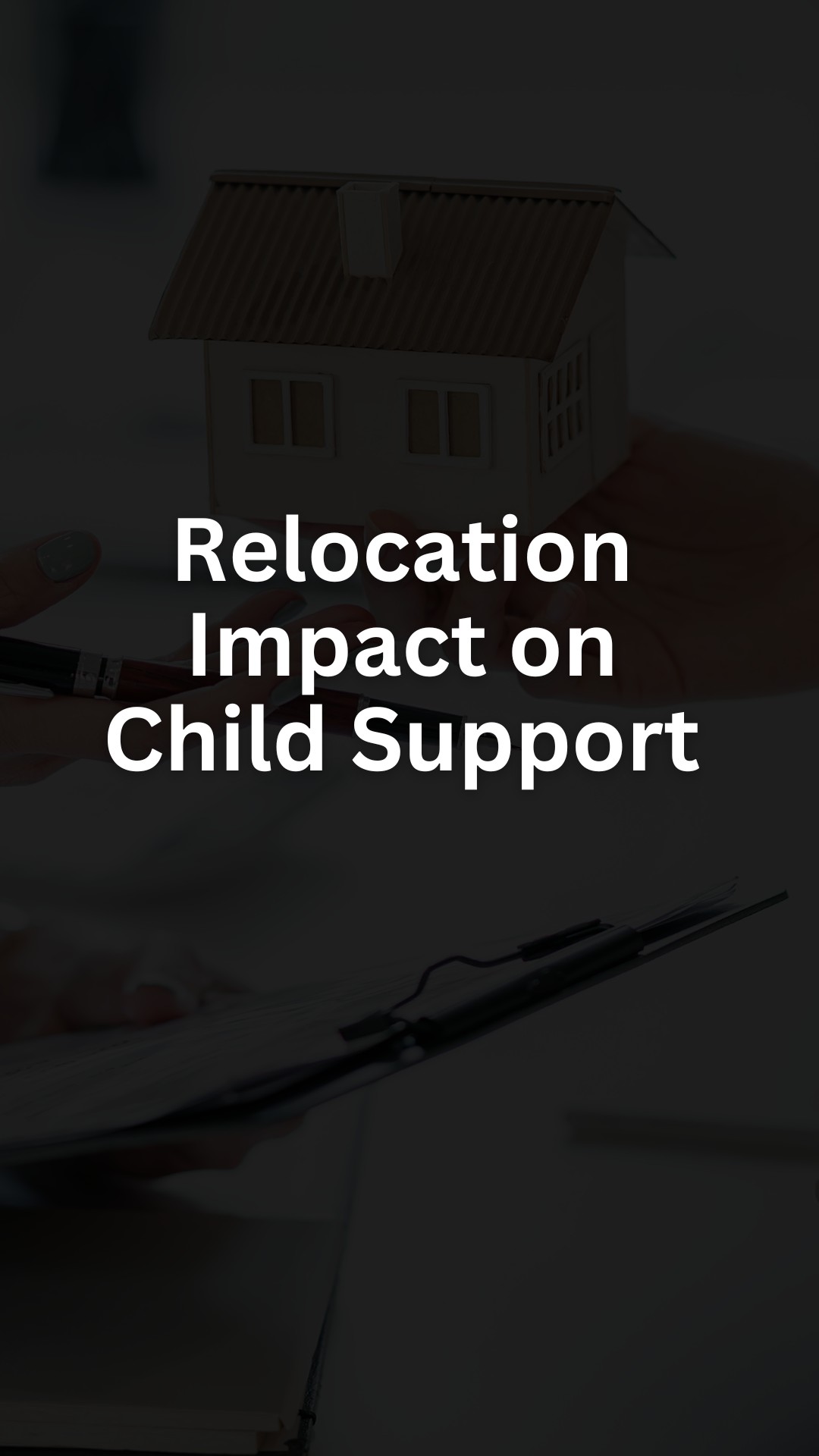Navigating divorce and relocation issues can be overwhelming. You might feel stressed about how it will affect your children, your finances, and your future.
With the right knowledge and preparation, you can smoothly manage the challenges that come with divorce and moving to a new place.
Understanding the legal aspects of relocation can save you from many headaches.
It’s important to know your rights and responsibilities, especially if children are involved.
Knowing how to negotiate and communicate effectively with your ex-spouse can make a huge difference.
Remember that you are not alone. Many people face similar challenges and there are resources available to help you through this tough time.
Finding support and staying informed will help you make the best decisions for yourself and your family.
Understanding the Legal Framework

Divorce and relocation involve complex legal issues. It’s crucial to know where legal challenges might arise, how federal and state laws interact, and what rights you have regarding custody and visitation.
Jurisdictional Challenges
Divorce and relocation can create issues about which court has the authority to make decisions.
Each state has its own rules about jurisdiction. For instance, a court in the state where you filed for divorce may not have jurisdiction if you or your spouse moves away.
Uniform Child Custody Jurisdiction and Enforcement Act (UCCJEA) helps determine which state’s court has jurisdiction in multi-state custody cases.
If you move, you may need to go through a process to transfer jurisdiction to a new state.
Federal vs. State Laws
Understanding how federal and state laws interact is important.
In most divorce and custody cases, state laws apply. However, federal laws can come into play, especially if you and your spouse live in different states or countries.
Federal laws, such as the Parental Kidnapping Prevention Act (PKPA), ensure that custody orders are respected across state lines.
This means that a custody order from one state must be enforced in another.
Knowing both sets of laws ensures that you follow the correct procedures and that your rights are protected.
Custody and Visitation Rights
Custody and visitation rights can be complicated by relocation.
Courts consider many factors when deciding if a move is in the child’s best interest. These may include the reason for the move, the distance, and the impact on the child’s relationship with the other parent.
It’s vital to create a practical Parenting Plan that accounts for potential moves and visitation schedules.
Sometimes, courts may also require a formal Custody Evaluation where a professional assesses the best interests of the child.
Keeping open communication with the other parent and following legal guidelines helps ensure that the child’s needs come first.
Emotional and Psychological Aspects

Divorce and relocation can bring a range of emotional and psychological challenges. You might face stress, anxiety, or sadness during this big change.
It’s important to know how to cope with these feelings. Children require special attention to help them adapt and feel secure.
Coping with Emotional Stress
Dealing with divorce and moving can be really tough. Emotions like stress and sadness are normal.
Talking to a therapist can be very helpful. Therapists listen and provide tools to manage your feelings.
Staying connected with friends and family is important. They can offer support and a sense of stability.
Joining a support group can also help. You’ll meet people going through similar situations which can make you feel less alone.
Physical activity like walking or yoga helps reduce stress. It releases endorphins which make you feel better.
Journaling is another good way to sort out your thoughts and feelings.
Supporting Children Through the Transition
Children often find divorce and relocation confusing and scary. They may feel lost or upset.
It’s important to talk to them honestly. Use words they understand. Reassure them that your love for them hasn’t changed.
Keep routines as stable as possible. Regular meal times and bedtimes help them feel secure.
Involve them in the moving process. Let them pack their own things. This can make them feel more in control.
Listen to their feelings. Let them express what they’re going through without interrupting or correcting them.
Seek professional help if needed. Child psychologists can offer extra support and strategies to help your children adjust.
Planning and Preparation

Effective planning and preparations are essential in managing divorce and relocation. Key considerations include setting realistic expectations, financial considerations, and creating a relocation plan.
Setting Realistic Expectations
First, it’s important to set achievable goals. Divorce and moving are both big changes. Understand that things might not go perfectly, and that’s okay.
Discuss your plans with your spouse, children, and any other important people in your life. Be clear about what you want, but stay open to adjusting your plans.
Check the laws in your area about moving after a divorce. Some places have rules about where you can move with your children. Talk to a lawyer if you need help.
They can explain your rights and options, making sure you follow the law.
Financial Considerations
Money is a big factor when you’re going through a divorce and planning to move.
Start by making a detailed list of all your expenses. This includes rent or mortgage, utilities, food, insurance, and any other regular costs.
Knowing what you spend now will help you plan for the future.
Think about the costs of moving. This can include hiring movers, renting a moving truck, or buying packing supplies.
You may also need to pay for a new place to live, like a deposit on an apartment or a down payment on a house.
Don’t forget to plan for unexpected expenses that might come up.
Talk to a financial advisor if you need help. They can offer advice on budgeting, saving money, and managing debt.
This can be really helpful in making sure you can afford your new life after the move.
Creating a Relocation Plan
A step-by-step plan can make moving less stressful.
Start by choosing where you want to live. Look for places that fit your budget and meet the needs of your family. Think about things like schools, jobs, and proximity to friends and family.
Make a timeline for the move. Decide when you need to start packing, when to hire movers, and when you need to be out of your current home.
Write these dates down and stick to them as closely as possible.
Get help if you need it. Friends, family, and professional movers can make moving easier.
Delegate tasks to them to reduce your stress and ensure everything gets done on time. Planning and preparation are key to a successful move after divorce.
Communicating with the Other Parent

Effective communication with the other parent can ease the challenges of divorce and relocation. It’s crucial to approach negotiations with a collaborative mindset and to consider mediation when necessary.
Negotiating Agreements
When negotiating, set clear goals for what you want to achieve. Make a list of non-negotiables and areas where you are willing to compromise.
Being prepared helps you stay focused and calm during discussions.
Listen to the other parent’s concerns. This shows respect and may make them more willing to meet you halfway.
Avoid blaming or attacking with words, which can make things worse.
Use emails or texts for important topics to prevent misunderstandings. Written records are helpful if you ever need to reference what was agreed upon.
Make sure to be clear and concise in your messages to minimize confusion.
Using Mediation Effectively
Mediation can help resolve disputes without going to court. A neutral third party, or mediator, helps both parents find common ground. This process is usually quicker and less costly than litigation.
Be open to the mediator’s suggestions. They are trained to help find fair solutions.
Bring all relevant documents and be ready to discuss your needs and concerns.
Stay focused on what’s best for the children.
The goal is to reach an agreement that works for everyone, especially the kids.
Keep emotions in check and remember that the mediator is there to help, not to take sides.
The Relocation Process

When going through a divorce and moving to a new place, it’s important to carefully consider the new location and tackle the logistical hurdles that come with moving.
Evaluating the New Location
Before relocating, you need to assess various factors about the new area.
Schools are vital if you have children. Look for high ratings and programs that suit your child’s needs.
Job opportunities are also critical. Ensure the new location offers good prospects in your field.
Another factor is cost of living. Compare it with your current expenses to avoid financial strain.
It’s also smart to check out healthcare facilities and public safety. A safe neighborhood with nearby hospitals can greatly affect your quality of life.
Logistical Challenges of Moving
Moving involves many steps that can be stressful.
Packing is a huge task. Start early, use quality materials, and label boxes clearly.
Hiring a moving company can help but research thoroughly to find reliable services.
Setting up utilities and changing your address are also essential.
Make sure to transfer or close utilities in your old home and set them up in the new one.
Don’t forget to update your address with banks, the post office, and any subscriptions.
Transportation of vehicles may be needed if the move is long-distance.
Plan how to get your car to the new location efficiently and safely.
Legal Proceedings and Documentation

During a divorce involving relocation, understanding the legal requirements and necessary documentation is crucial. Key areas include modifying existing court orders and collecting evidence to support your case.
Filing for Modification of Orders
When one parent plans to move, you may need to modify existing custody or visitation orders.
Start by filing a petition with the court. This document will explain why the change is necessary. You should clearly outline the reasons for the move and how it impacts the current arrangements.
Steps to File for Modification:
- Obtain the required forms: Visit your local family court website.
- Complete the forms: Provide all requested information, including details about the intended move.
- File the forms: Submit your completed paperwork to the court.
After filing, a court hearing will be scheduled. During this hearing, both parents can present their arguments.
Be prepared to show why the move is in the best interest of the child.
Gathering and Submitting Evidence
To support your case in court, you need to gather and submit evidence.
This evidence can include various documents and testimonies that demonstrate the benefits of the proposed relocation.
Evidence may include:
- Employment letters: To show job opportunities in the new location.
- School information: Details about educational facilities and extracurricular activities.
- Medical records: Information about healthcare services in the new area.
Tips for Gathering Evidence:
- Stay organized: Keep all documents labeled and in one place.
- Include detailed explanations: Describe how each piece of evidence supports the move.
- Get professional opinions: Letters from teachers, doctors, and other professionals can strengthen your case.
By presenting relevant and compelling evidence, you increase your chances of obtaining a favorable decision from the court.
Always ensure that your documentation is thorough and accurately reflects the positive aspects of the relocation.
Parental Rights and Responsibilities

When parents go through a divorce and face relocation issues, it is crucial to manage rights and responsibilities carefully. Key areas include maintaining strong relationships with children and following court orders.
Maintaining Parent-Child Relationships
Ensuring ongoing connections between the child and both parents is essential.
Regular communication through phone calls, video chats, and social media helps.
Scheduled visits also play a critical role. Be flexible with these visits to accommodate changes that naturally occur.
Joint activities like online games or shared books can keep bonds strong.
Engage in school activities through email, virtual parent-teacher conferences, or by staying involved in homework.
Consistency in routines across both households supports your child’s sense of stability.
Adhering to Court Orders
Court orders are designed to protect the child’s best interest. It is vital to strictly follow these orders, including custody arrangements and visitation schedules.
This reduces conflicts and legal complications.
Any changes in living situations or schedules must be reported to the court promptly.
Document your compliance with all court mandates to avoid disputes.
If changes in orders are necessary, petition the court with clear reasons.
Engage a legal professional to navigate this process efficiently.
International Relocation Concerns

When dealing with international relocation during a divorce, you must pay attention to jurisdiction issues and the specific rules of the Hague Convention on child abduction.
Dealing with International Jurisdictions
Moving to a new country can complicate legal matters. Different countries have different laws about child custody and divorce.
You need to understand how these laws will affect your case.
Some countries might not recognize your custody agreement from your home country.
Thus, you should get advice from a lawyer experienced in international family law.
You also need to know which country will have jurisdiction over your divorce case.
This depends on where you and your children live and have legal ties.
Understanding the Hague Convention
The Hague Convention protects children from international abduction by a parent. If one parent moves a child to another country without permission, the other parent can request the child’s return.
The Convention only applies if both countries are members. You can check if the country you’re moving to is a member online.
It also ensures that custody decisions are made by the country where the child usually lives.
This can help return a child quickly and make sure custody disputes are resolved fairly.
Relocation Impact on Child Support

Relocating after a divorce can significantly affect child support. It may lead to modifications in child support orders and have financial consequences for both parents.
Modification of Child Support Orders
When a parent moves, it can change the needs of the child. The court might adjust child support.
For example, if the custodial parent moves to a place with a different cost of living, this could impact the amount of support needed.
You may need to file a request to modify the child support order.
The court considers various factors, like the distance of the move, the child’s needs, and each parent’s financial situation.
Documentation, like proof of expenses, is crucial.
Changes in travel expenses can also be a factor.
If a parent now needs to spend more on travel to visit the child, the court may adjust the support amount.
Always consult with a legal professional to understand how relocation might change your child support responsibilities.
Financial Implications of Moving
Relocation can lead to increased or decreased costs for both parents.
For instance, moving to a city with a higher cost of living might require higher child support payments.
Conversely, if the move is to a cheaper area, the payments might decrease.
The parent moving should think about additional costs like travel expenses for visitations.
These extra costs can be considered in the child support calculation.
It’s important to keep track of all expenses related to the move and the child’s needs.
Having a clear record of financial changes helps the court make a fair decision.
Both parents should communicate openly about financial impacts to ensure the child’s needs are met without unnecessary disputes.
Always consult with a lawyer before making significant decisions about relocating and child support.
Reassessing Custody Arrangements

When facing divorce and relocation, you must reassess custody arrangements to prioritize the child’s well-being and create effective long-distance parenting plans.
Assessing the Best Interest of the Child
Your child’s needs should come first.
Changes in living arrangements can impact their schooling, friendships, and daily routine.
Evaluate the emotional and physical health of your child.
Think about proximity to extended family, access to healthcare, and educational opportunities.
Be ready to make adjustments to reduce stress and create a stable environment.
Courts look at many of these factors in making their decisions, so gather relevant information and be prepared to discuss these aspects clearly.
Long-Distance Parenting Plans
Long-distance can complicate parenting.
Create a detailed plan that includes scheduled visits, holidays, and special occasions.
Use technology like video calls to maintain consistent communication and strengthen the parent-child bond.
Include plans for travel costs and how to handle emergencies.
Consistency is key, so set clear expectations for everyone involved.
Make sure the plan is specific, practical, and flexible enough to adapt to changes as needed.
Enforcement and Violation of Orders

When dealing with divorce and relocation, it’s crucial to enforce court orders. Violations can lead to serious consequences.
Contempt and Enforcement Proceedings
When someone doesn’t follow a court order, they may be held in contempt. This means they are disobeying a legal command.
To start a contempt proceeding, you usually need to prove that the person knew about the order and chose not to follow it.
During a hearing, the judge reviews evidence.
If found in contempt, penalties can include fines, jail time, or changes to custody arrangements.
It’s important to keep detailed records of any violations to present in court.
Remedies for Violation of Relocation Orders
If a relocation order is violated, specific steps can be taken.
One option is to request a modification of the existing order. You can also ask for the child to be returned immediately.
Legal remedies vary by state.
Some states have strict penalties for moving a child without permission, like fines or even jail time.
Always consult a lawyer to understand your options and the best course of action for your situation.
Frequently Asked Questions

Navigating divorce and relocation can be challenging, especially when children are involved. Legal and emotional aspects play significant roles, and specific questions often arise.
What considerations must be taken into account when relocating with children after divorce?
When relocating with children after a divorce, you need to think about the child’s best interests, legal custody arrangements, and how the move will affect their relationship with the other parent.
It’s important to create a feasible visitation plan.
How can divorced parents navigate out-of-state moves?
Moving out of state with your child after a divorce requires careful planning.
You must notify the other parent and possibly get court approval.
Clear communication and legal guidance are crucial to navigating this process smoothly.
Is it permitted to relocate with a child before the divorce is finalized?
Relocating with a child before the divorce is finalized is complicated.
You may need the other parent’s consent or a court order.
Moving without legal permission could negatively impact custody decisions.
What are the legal implications of moving out during a divorce process?
Leaving the marital home during a divorce can have implications.
It might affect property division or custody arrangements.
Always consult legal advice before making such a decision to understand the potential consequences.
How can individuals effectively cope with the emotional aftermath of a divorce?
Dealing with the emotions after a divorce involves seeking support from friends, family, or professionals.
Taking time for self-care, engaging in hobbies, and possibly joining a support group can help manage these feelings.
What is the typical duration for emotionally recovering from a divorce?
Emotional recovery from a divorce varies for each person. It may take several months to a few years, depending on personal circumstances and support systems.
Allow yourself time to heal and seek support when needed.